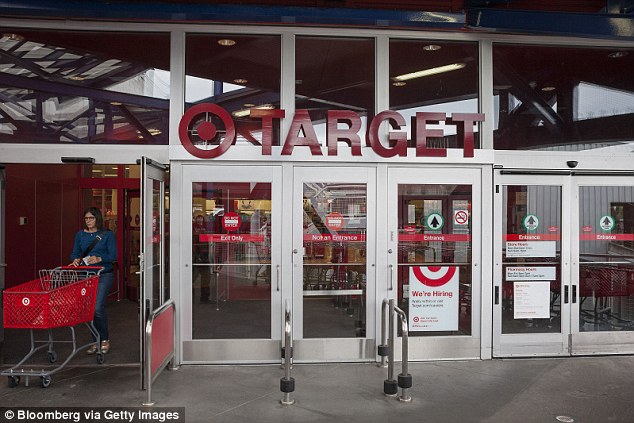Shoppers have accused retailer Target of trivializing mental illness by stocking holiday sweaters with the slogan ‘OCD – Obsessive Christmas Disorder’.
The red garments are being sold as part of their ‘ugly sweaters’ range, and have been on sale in stores and online.
But some customers have hit out at the sweaters, saying they make fun of obsessive compulsive disorder, which can causes great distress to sufferers.
It is estimated that 2.2million Americans suffer from the condition, which is characterized by having certain thoughts or rituals that get in the way of daily life.
And many suffers took to Twitter to vent their fury at Target over the sweater.
Logan Holman wrote: ‘@Target please discontinue the OCD Obsessive Christmas Disorder sweater bc it’s not cute or funny or festive.’ (sic)
Maya Albright said: ‘@Target your Christmas sweater line about OCD is so offensive making fun of actual mental health problems isn’t funny.’
Sinister Claw tweeted: ‘I saw a shirt saying OCD Obsessive Christmas Disorder at your store and how about we don’t make light of a thing people suffer from.’



While Erina posted a picture of the sweater and said: ‘yo @Target thsi is bad, put it away in a deep deep dark hole.’
The retailer responded to some of the tweets online saying: ‘We never want to offend you with the items we carry. We’ve shared your thoughts with our Merchandise review team. Thanks!’
However, the sweater still appears on their website and is available to buy online.
A spokesman for Target told Adweek: ‘We never want to disappoint our guests, and we apologize for any discomfort.


‘We currently do not have plans to remove this sweater.’
It is the second time this week that Target has come under fire on social media after it announced their Black Friday sales would actually be starting at 6pm on Thanksgiving.
Not everyone appreciates the early start with one commentator posting on Target’s own website: ‘Have some respect for your employees, and let them celebrate the holiday with their families.’
The early openings yielded mixed results for many stores. In many cases, the move simply shifted the timing of sales rather than enlarging the number of sales.



